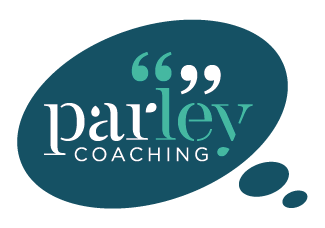Coaching for change: what have I learnt so far?
 “How did you go bankrupt?” Bill asked “Two ways,” Mike said.
“How did you go bankrupt?” Bill asked “Two ways,” Mike said.
“Gradually and then suddenly.”
Ernest Hemmingway, “The Sun also Rises”
I announced that I was leaving Law after 29 years in early April. To many it was sudden but in truth the decision was many years in the making, even if I didn’t know it. Now a coach, here are my reflections on what I have learnt about coaching others through change. Coaching is all about change and shift. For me it is a creative alliance between coach and coachee building thoughtful change. The change could be a new role, becoming leader, coping with reorganisation, the re-set post Lockdown. You come to a coach because you want to think through change, the next steps. So here are my thoughts:
1. Read but not too much: my happiest moment in the maelstrom of change, just as I was preparing to tell people I was leaving, was reading “Working Identity” by the brilliant Herminia Ibarra. It taught me at least two important things. First, that change in what you are at work is a long term transition. I looked back at some of the amusing, inspired and confused things I had done over the previous years and realised, with a great deal of relief, that I was quite some distance from the start of my transition. Secondly, that the only way to find your new identity is by experimentation, by trying stuff out. You can’t think your way to the right answer. There isn’t a TripAdviser for your most important decisions. Least of all in your own brain. So thank you Herminia for teaching me when to read and when to just get out there.
2. Stories are for real: I loved working this out. I love stories. I have been reading and writing all my life. But what do I mean? We all have stories about ourselves. “I love cities and people”. “I love mountains and birdsong.” “I can’t speak in front of an audience”. “My World’s a stage” “I am a follower”. “I am a leader” “I don’t need money”. “I need lots of money”. “I am strong”. “I am weak”. We build multiple (and more nuanced) stories about ourselves through life and experience and rarely question them, and then find ourselves believing them to be true. Stories are for real. And this is good and bad. My confidence as a lawyer was less to do with my lawyerly skills, more to do with my story. It helped me. But what about when the stories start to collide? Or when things around you change and the story no longer works? That is hard. It is why so many of us have periods where they feel lost. They look to externals. The job has changed. The kids have made them tired. The people they work with have changed. The likely truth is in the storytelling.
3. Stories can be changed: I realised that I had been wanting to do something more people focussed, more creative, more autonomous by reflecting on clues from my past. I had stopped enjoying the office – I used to love the buzz, the banter, the camaraderie. I had over many years struggled with colleagues who did not nurture and respect people in the same way as I felt I did – it was the only thing I consistently took home with me. I loved helping colleagues. I loved helping clients but one had remarked to me, much to my surprise at the time, you’re much more like a coach to me than other advisers. I had written a (bad and unpublishable) novel. My story had been changing. Most of the important work towards change comes when you don’t even realise what’s going on. Everybody reading this – your stories are changing.
4. Change involves grief: This one was hard. I was lucky enough to sit in on a wonderful coach coaching a senior executive through transition. “What are you going to give up?”she said. The emotion in the 50 year old man was palpable. He wanted to change. But he had wanted change to be additive. Cake and eat it. We generally don’t have the time for more. To change we almost always need to say goodbye to something. I have discussed this in my coaching with many different clients and there is always emotion. It is like getting on the boat and leaving land. The promised land may sound great. But this land is what has made me, it holds so many memories, it is safe.
5. Coaching helps: coaching is a privilege and you can make of it as much as you want – you are the central character. I was coached towards the end of 2019 with a view to thinking through my transition. I felt strongly that I needed a change. I wanted to talk it through, work out whether that was right. The first few sessions were hard. And in truth I wasn’t convinced. Then I started to let the meetings breath, not try to impress or control or hide. I began properly thinking forward, the new story. My coach told me it would take time. But talking the transition through made me resilient and self-aware, as well as excited. I will keep making mistakes but Herminia would expect that.
And then suddenly I was a coach.
